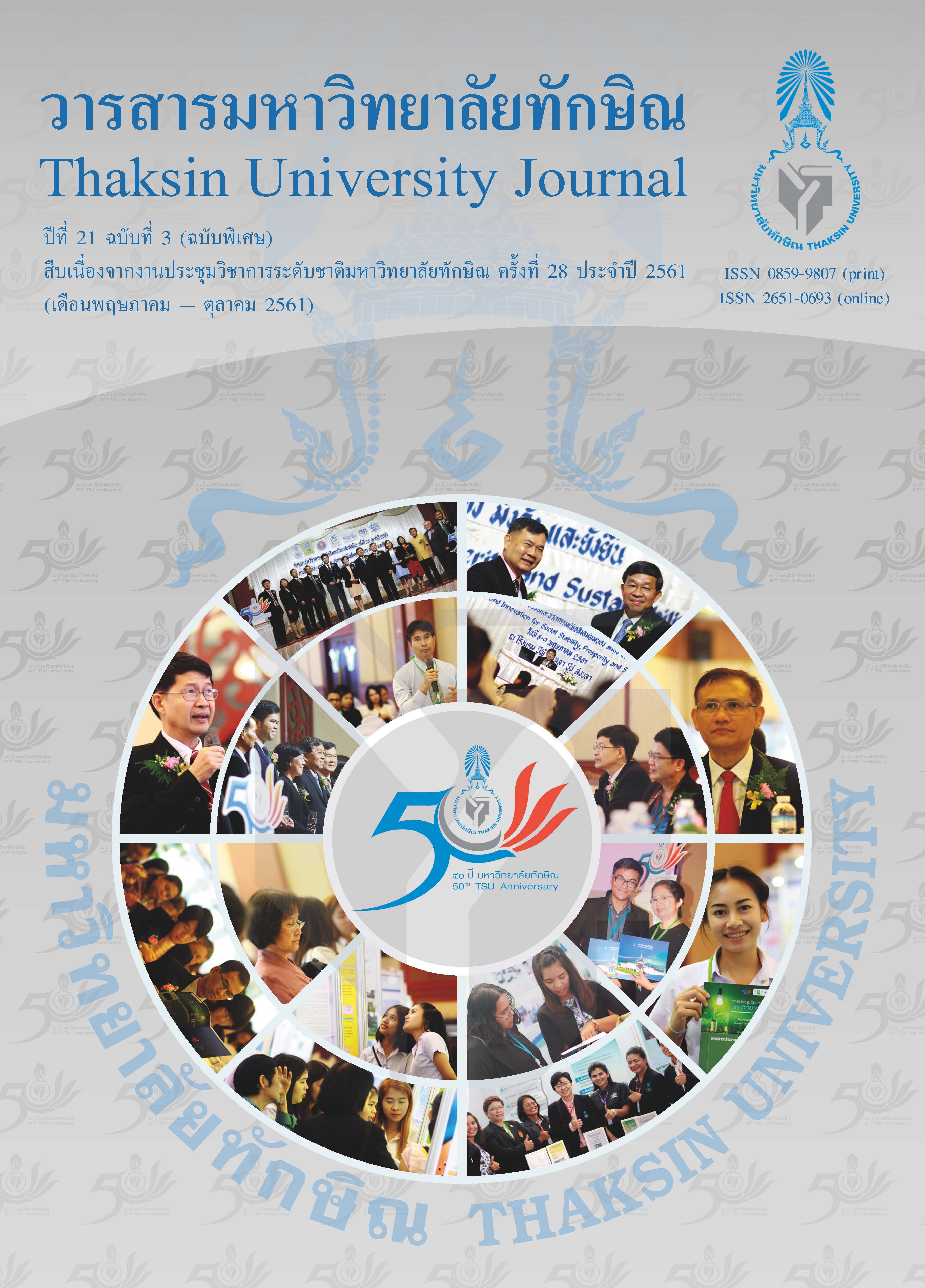Effects of [6]-shogaol and demethyl-[6]-shogaol on Growth Inhibition and Apoptotic Induction in Breast Cancer Cell Lines
Main Article Content
Abstract
Ginger (Zingiber officinale Roscoe, Zingiberaceae) has been used in traditional medicine for the treatment of several diseases. The aim of this study was to examine the cytotoxicity effects of bioactive compound and its derivative extracted from Z.officinale on HER2/neu-positive (SKBR-3) and negative (MDA-MB-231) breast cancer cell lines. Cell proliferation of all treated conditions was determined by MTT assay. Results from MTT assay indicated that [6]-shogaol, bioactive compound from Z.officinale, had cytotoxicity effect on SKBR-3 and MDA-MB-231 with IC50 doses of 46.37 µM and 67.82 µM, respectively while demethyl-[6]-shogaol did not exhibit cytotoxicity toward these cell lines. DNA fragmentation, typically seen in apoptosis, could be detected in SKBR-3 and MDA-MB-231 after incubation with [6]-shogaol at IC50 doses for 24 hours. Taken together, these results suggest that [6]-shogaol harboring anti-proliferative and anti-apoptotic effects against breast cancer cells line SKBR-3 and MDA-MB-231. However, the molecular mechanism of this compound should be further investigated.
Article Details

This work is licensed under a Creative Commons Attribution-NonCommercial-NoDerivatives 4.0 International License.


